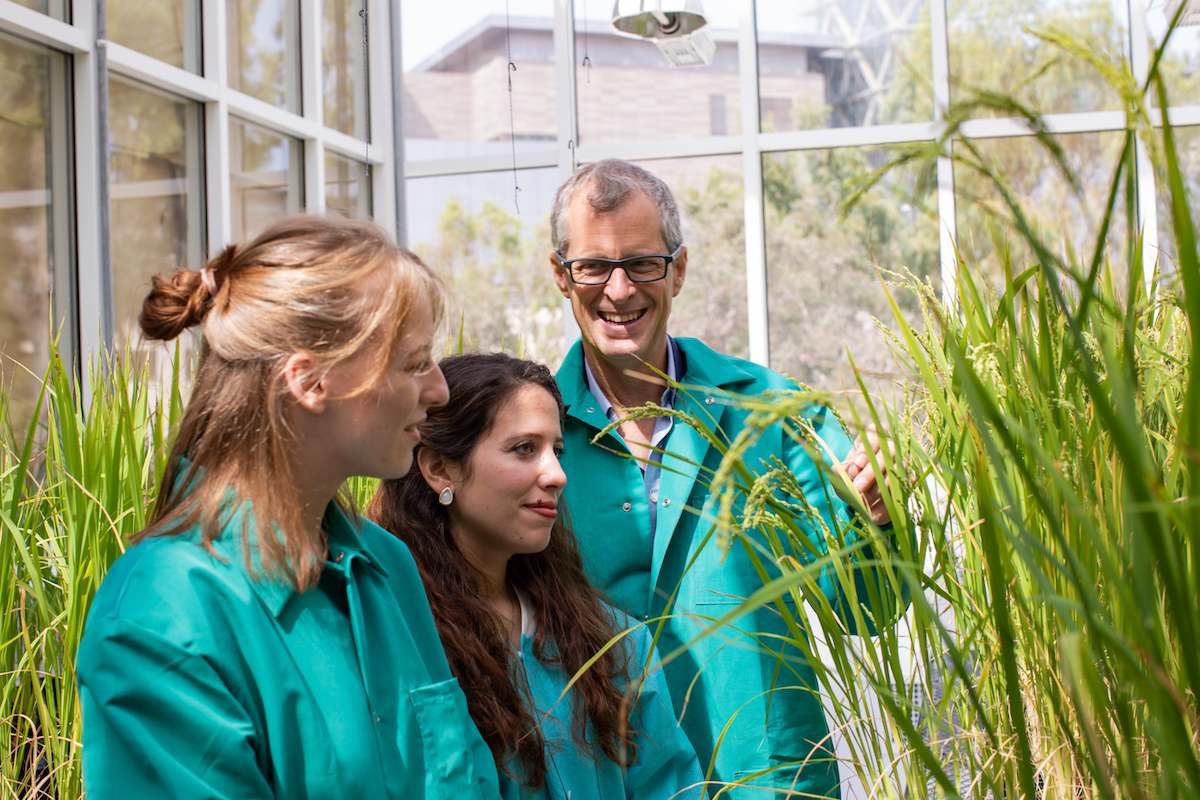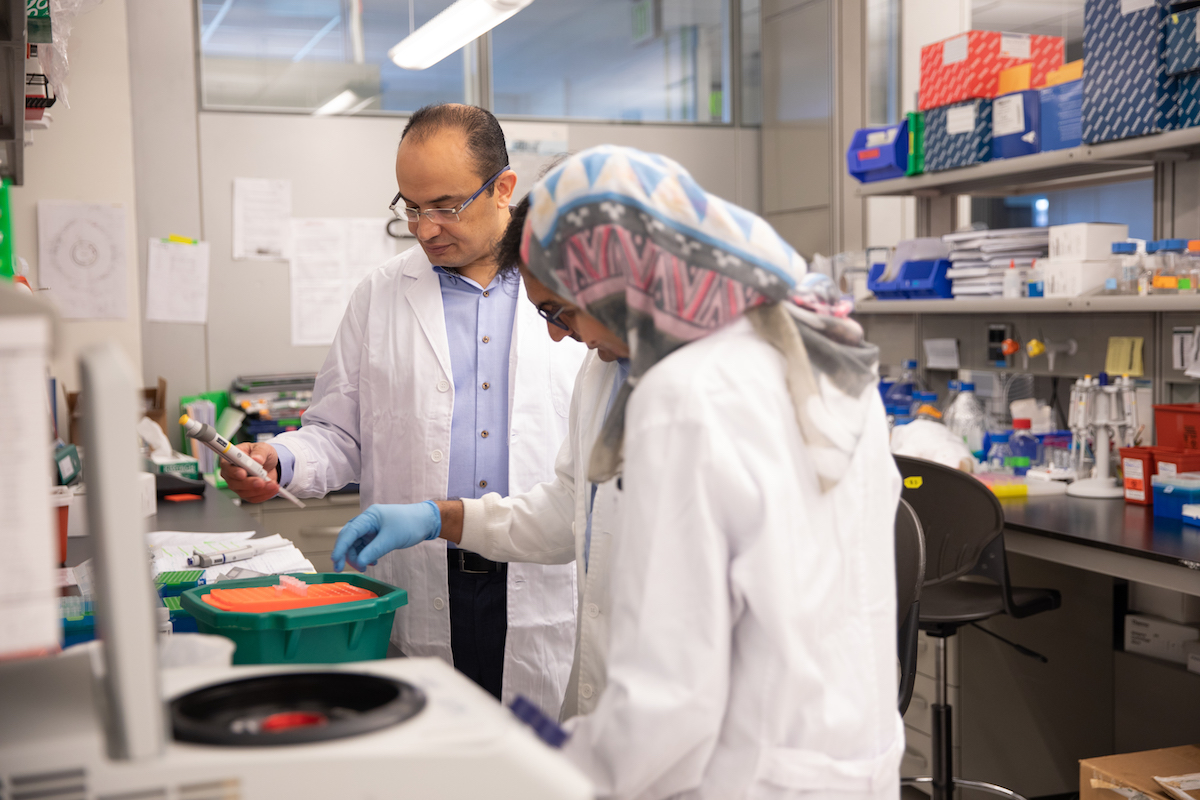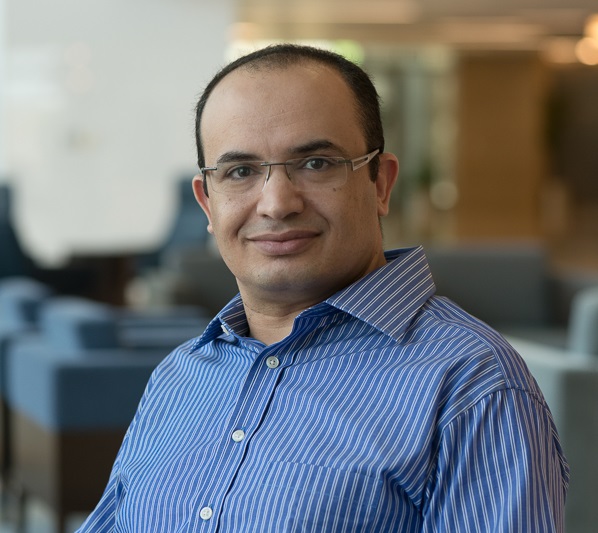New plant breeding technologies for food security

The research groups of KAUST Professors Mark Tester (pictured here with two of his Ph.D. students) and Magdy Mahfouz are examining new plant breeding technologies to contribute to global food security. Photo by Sarah Munshi.
An international team of scientists that includes KAUST plant scientists called for new plant breeding technologies to be deployed and regulated in order to contribute to global food security.
"The toolbox of plant breeders is expanding in exciting ways," stated Mark Tester, KAUST professor of plant science. "Rapid generation advance and single seed descent minimizes crop life cycle for research on breeding, selection and fixing of useful genes. These new methods are already contributing to the improvement of several grain crops, building on the slower and less accurate pedigree selection methodologies that characterized the Green Revolution."
Tester and his research group are looking at new breeding technologies such as gene editing to further improve crops. In a paper recently published in the journal Science, they argue that these technologies provide powerful alternative methods for enhanced food production compared to genetically modified (GM) crops.

KAUST Associate Professor Magdy Mahfouz (left) works on campus with his research group to examine new plant breeding technologies. Photo by Sarah Munshi.
GM crops are heavily regulated due to the use of foreign DNA. New methods of plant breeding that do not use transgenes could lower the costs of the regulatory procedures and speed up innovation, increase competition in the seed industry and make improved seeds more affordable for farmers in developing countries. The scientists argue that the new technology must be carefully deployed to avoid making the same mistakes as with GM crops.
.jpg)
KAUST plant science researchers' work benefits from the University's on campus greenhouse facilities. Photo by Anastasia Khrenova.
Plant produce and seeds from these more advanced developing countries could then be delivered regionally to neighboring less-developed countries. The less-developed countries would otherwise have limited access to new technologies or would have to pay much higher prices. An existing intergovernmental initiative for rice seeds without borders is a major step in this direction, allowing for seed sharing between a number of South and Southeast Asian countries.

KAUST Professor of Plant Science Mark Tester noted that, due to new research technologies, 'the toolbox of plant breeders is expanding in exciting ways.' File photo.

KAUST Associate Professor of Plant Science Magdy Mahfouz (pictured here) and Professor Mark Tester believe plant genome editing will produce many interesting applications in the next five years. File photo.
The teams' research showed that achieving global food security will require a framework based on the lessons learned from the past and an environment facilitating innovation. A multipronged approach to exploit the potentials of new breeding technologies must take into consideration all components involved in technology development, dissemination, adoption and social acceptance. Genome editing is predicted to be a powerful addition in the fight against hunger and poverty.
Related stories:
- KAUST takes semi-saline irrigation to a new level
- Achieving agricultural sustainability through seawater
- KAUST Professor Mark Tester receives award for agricultural innovation
-
Quinoa-quest to feed the world

